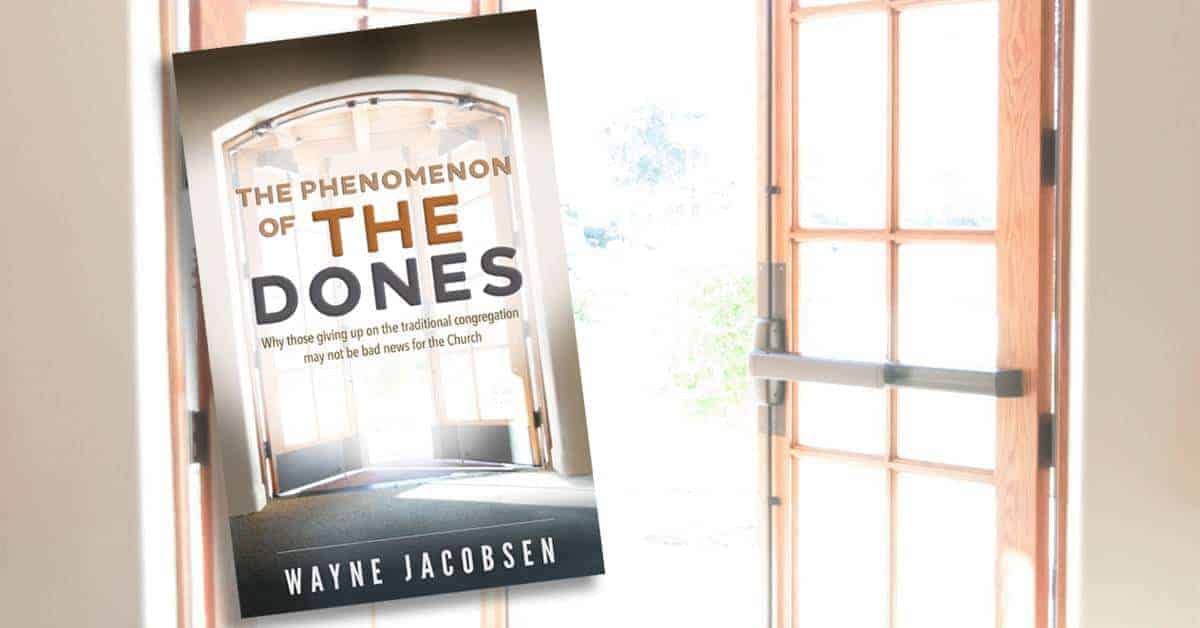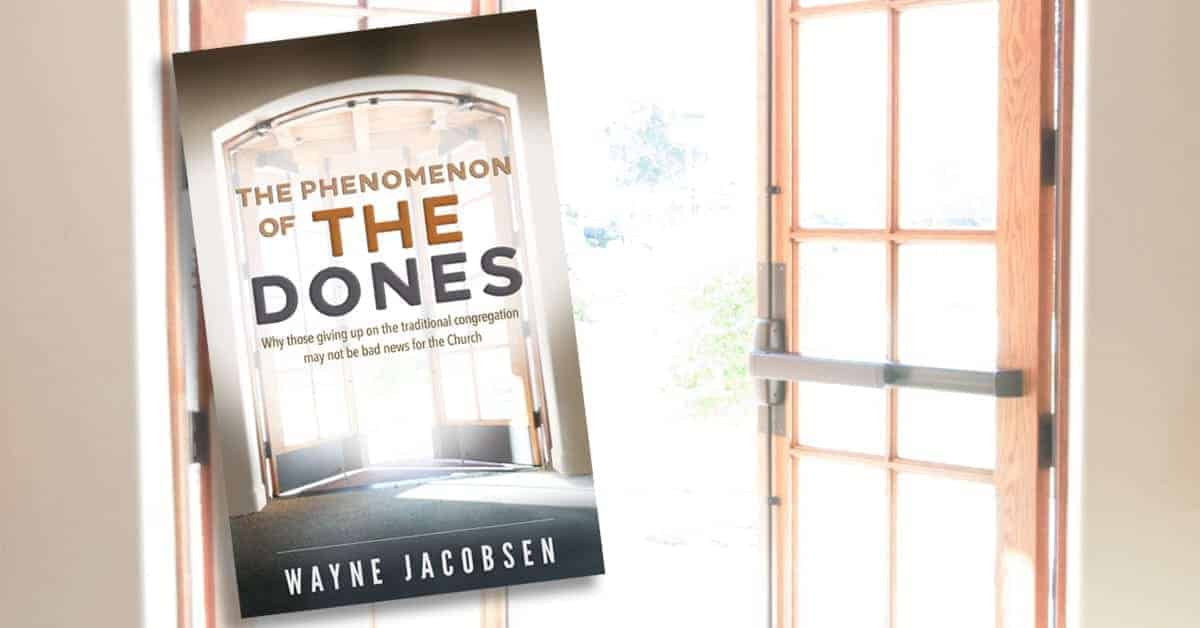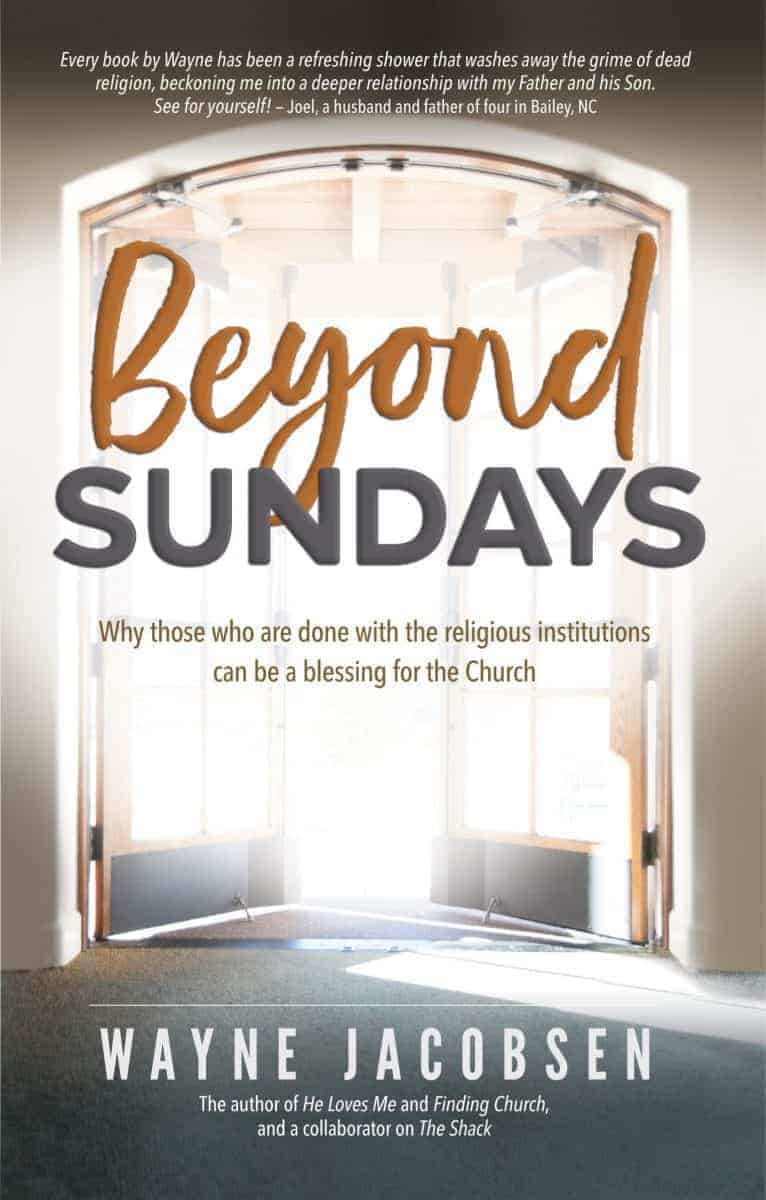It won’t be a secret much longer: You don’t have to participate in a local congregation to live out a transforming relationship with Jesus, experience the wonder of Christian community, or to find meaningful ways to extend his kingdom in the world.
We’ve known for some time that people are leaving traditional congregations in droves. The statistics are irrefutable. Popular wisdom, and no small number of sermons told us that people who were not part of a congregation are not part of the church. Their salvation is suspect and they will whither away spiritually either because their spiritual passion would wane or they would get lost in the weeds of false teaching. And while that is true of some, researchers have now identified a large group of people who are thriving in their faith beyond the walls of any local congregation.
Dr. Josh Packard, calls them “The Dones,” in his book Church Refugees, which will be released on June 1. The book is subtitled, “Sociologists reveal why people are done with church but not their faith” and helps us understand this heretofore unidentified group of believers. He describes the Dones as high-capacity people, who were deeply involved in their local fellowships until they become stifling to their own journey. For years they sought to help reform it, only to find their efforts and their passion stifled by a bureaucracy that resisted change. Finally, seeing no other way for their faith to survive, they made a conscious decision to leave the congregational model and find growth, fellowship and mission beyond it.
While many will celebrate the discovery that the church of Jesus Christ is broader and more robust than our local institutions can contain, others find the news disturbing and prefer to reject or ignore the study. In a recent webinar with the Dr. Packard much of the chat messages to the moderator expressed displeasure that they were giving voice to this research. Already one denominational bookstore chain has said they won’t carry the book, fearful of its influence on its congregations.
They either don’t believe its conclusions or want to ignore them as a threat to their own future. Because they define the church institutionally they can cast aspersions the faith of anyone who does not belong. That’s why many have responded to declining attendance by doubling-down on obligation to keep attending. Some religious leaders have a lot invested in marginalizing those who no longer participate in a local fellowship lest others follow them out the door.
Interestingly, Dr. Packard is not encouraging people to leave their local congregations. In fact, he attends one and hopes that this study will help pastors to innovate ways to engage their most capable members so they won’t feel the need to look elsewhere. Traditional congregations serve a valuable purpose where they teach people to live out their faith and where they incubate authentic community.
Twenty-five years ago I would have been shocked at this research myself. As a pastor, I thought our program essential to faith and saw people outside of it as bitter, lone rangers who were just miffed that they couldn’t get their way. One day through the betrayal of a close friend, I found myself for the first time outside the congregation. Of course I could have gone elsewhere, but found my heart hungering for a more authentic journey than any fellowship I’d been a part of was able to foster. And I discovered I was not alone and the others were not
That’s why Dr. Packard’s research does not come as a surprise to me. For the past two decades I’ve been living among those who have found a vibrant life in Jesus as well as community outside of any religious institution. They are passionate, caring, committed disciples who want to see the kingdom of God grow in the world. They have been scorned, condemned, and maligned by those who reject their faith simply because they stopped attending Sunday services.
If you care about the future of the church in the Western world, you’ll want to avail yourself of this book. Whether you are one of the Dones, or concerned about people leaving your congregation you’ll at least want to be understand why. My hope is that we will come to celebrate all the ways that Jesus is inviting people to himself and recognize the life of the church in its more informal settings as well as more formal ones.
Whether you find this research validating or threatening, we need a larger conversation about the future of the church, not a smaller one. Resist the temptation to frame this as another “our side is right” debate and instead of exalting your group and vilifying those who disagree with you let’s look for ways to engage others with love and respect. We’ll find that there are people everywhere who deeply love God—those who still find great value in local congregations and those who are exploring beyond it.
We can think beyond the us-versus-them conversations about the Dones that marketers and media will exploit for financial gain and find ourselves in conversations that celebrate our common unity of being God’s children and recognize his work in others even if it is beyond the environments we hold dear.
__________________________
Wayne Jacobsen is the author of Finding Church and host of a podcast at The God Journey where he you’ll find his conversation with Dr. Packard about the Dones on May 1st and May 8th episodes.








